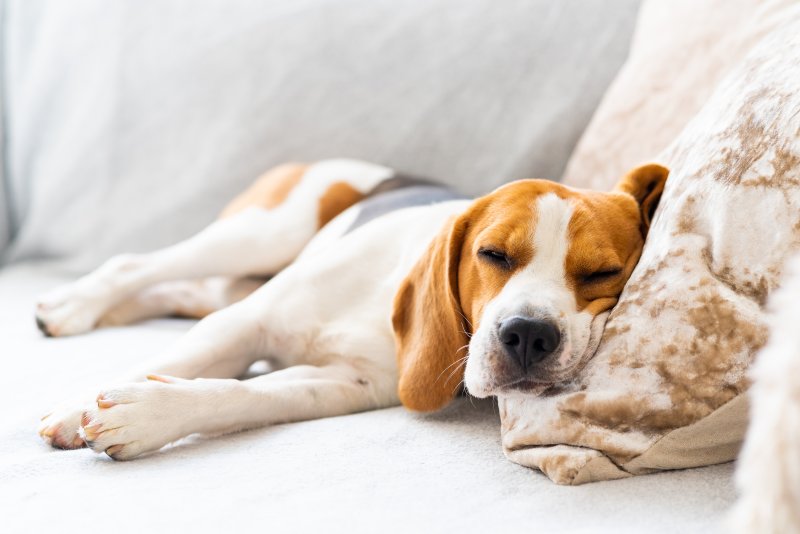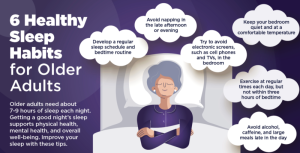Craving better sleep? Forget counting sheep
Many of us are continually frustrated by one activity that consumes huge chunks of our time, probably a third of our lives.
Is it those lengthy conversations about our latest ailments? Ruminations about retirement funding or product instructions with meaningless diagrams and tiny type? Chats with customer service representatives about pretty much anything?
Nope. Sleep.
Some seniors serenely slip into bed, plop their head on a pillow and conk out, sweeping into hours of dead-to-the-world slumber. Others, however, wait for — or worse yet, jealously watch a partner engage in — good sleep, meanwhile experimenting with yet another supplement or medication or online tip. Researchers say one-third of adults don’t get enough sleep, and perhaps half of older adults have sleep problems.
Dr. Shilpa Kauta, medical director for the ChristianaCare Sleep Wellness Center, said sleep is an underrated, very “active and restorative process,” critical to our health.
“Sleep is important for memory consolidation, building immunity, recovery from illness and cardiovascular health,” Kauta said, noting that recent research also shows sleep peels off certain sticky brain proteins associated with dementia. A lack of sleep may increase the risk of diabetes, and experts say sleep deprivation causes diminished memory, irritability and a greater risk of falls.
“Prioritize sleep,” she said. “It is a cornerstone to good health, just like nutrition and exercise.”
The fundamentals
Certain things cause us to get sleepy, apart from that British murder mystery or Vince Vaughn rom-com with the overly familiar plot. According to Dr. Rohin Saroya, a board-certified family medicine physician and sleep specialist with Bayhealth, a surprisingly complex process takes over, including circadian rhythms (our internal 24-hour sleep/wake clock) and other brain functions that slow us down and get that familiar sleep hormone melatonin flowing. Much of it is triggered by darkness.
Saroya points out that while we commonly hear we need eight hours of sleep, individuals may need considerably more or less. “It is very different for each of us,” he said. “I tell patients if they are feeling rested and refreshed when they wake up, they are probably getting enough.”
Two general types of sleep occur in four stages over a span of about 90 minutes as we sleep. Non-rapid Eye Movement includes an initial very light sleep, followed by a phase of further relaxation and then a deep sleep where our bodies shut down, probably for around 20-30 minutes, Saroya said.
The order is sometimes jumbled, but then we enter Rapid Eye Movement sleep, and a bunch of other brain activity and healthy stuff happens, including vivid dreaming. If you wake up in a sweat, having been saved from some predicament you never want to mention to another soul or ever face again, you probably were in REM sleep. REM sleep prepares your brain and body for a new day, and Saroya said we need about a quarter of our sleep time in REM each night.
As we age, however, our circadian rhythm often misses a beat and, combined with other brain changes, that makes sleep periods shorter and lighter. Age-related concerns like pain, indigestion, restless legs, trips to the bathroom, medication and sometimes a lifetime collection of thoughts and worries or even depression may also hamper sleep, Saroya said.
How to improve
Exercise and don’t nap, especially late in the day. “It’s similar to what we tell our kids about eating before dinner,” Saroya said. “If you nap too much, you won’t have an appetite for sleep.”
Avoid excessive alcohol and caffeine, and don’t eat or drink a lot close to bedtime.
Have a relaxing pre-bedtime routine. “Try to set up your activities and habits to protect that schedule,” Kauta said.
Avoid screens, especially stimulating or interactive ones, and make bedtime just about sleep, so your brain primarily connects it to slumber. “I tell patients their bed should be for sex and sleep, and not much else,” Saroya said.
Keep a sleep diary, noting your pre-bedtime actions and how you slept.
Wearable devices track sleep stages, and professional sleep studies provide detailed information. Consider whether sleep apnea, a common concern, is a factor.
Medication can help with sleep issues, and there’s a variety of supplements, although each bit of research seems to recommend or criticize one over the other. They include nitrates, magnesium, zinc, vitamin D, L-theanine, valerian, hops, kava, German chamomile, cherry, CBN, CBD and tryptophan.
Some suggest the smallest possible amount of melatonin (remember, it’s there helping us each night and seems to diminish as we age), but Saroya says it primarily makes us sleepy and may not help much beyond that.
Two recent research papers available from the National Library of Medicine review the effectiveness of supplements; they are: Herbal and Natural Supplements for Improving Sleep: A Literature Review, and Current Evidence on Common Dietary Supplements for Sleep Quality.
Both professionals say you always should get the advice of a healthcare professional about medication or supplements.























































